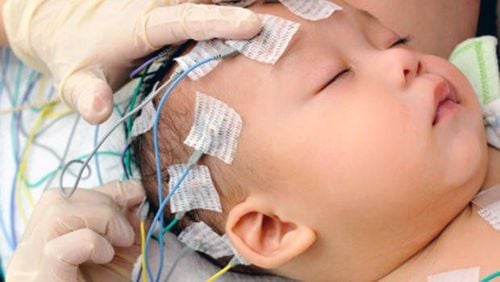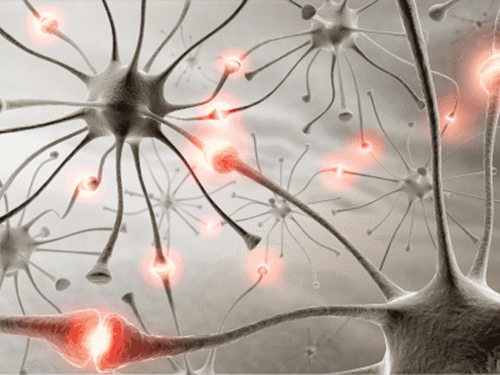This is an automatically translated article.
Article by Doctor Vu Duy Dung - Department of General Internal Medicine - Vinmec Times City International Hospital.Recognizing the cause of the first seizure and determining the etiology of the epilepsy is key to treatment. A systematic approach to the patient with a first seizure helps distinguish between an acute symptomatic seizure, a seizure with or without a trigger, and an epileptic seizure.
1. Assess the cause of the seizure
Routine tests with electroencephalography (EEG) and magnetic resonance imaging (MRI) can show a tendency to more seizures and help identify background epilepsy. An acquired cause can be identified in 30% of epilepsy patients. Still 70% of patients are thought to have a genetic cause. Especially in patients with specific epilepsy syndromes or suspected autosomal dominant inheritance, genetic testing and counseling should be considered.
Neuroimaging, autoimmune antibodies, and genetic testing have revolutionized our ability to understand the causes of many types of epilepsy. New epilepsy classifications that separate structural, metabolic, genetic, infectious, and immune-mediated causes will often help with prognosis and treatment.
There is a growing acceptance and elucidation of the term epilepsy as the most common cause of recurrent seizures. The new classification of epilepsy does not stop at identifying specific epileptic syndromes but also aims to identify underlying causes. This leads to earlier detection of candidates for surgery, a better understanding of many types of genetic epilepsy, and medical treatment targeting the underlying disease.

Kỹ thuật điện não đồ (EEG) giúp bác sĩ đánh giá tình trạng động kinh ở người bệnh
Evaluation of the cause of a seizure is crucial to providing information to help make informed treatment decisions and to give sound advice, starting with the question of whether epilepsy is real or may be related to some other condition. other transient, paroxysmal physiological or psychogenic phenomena. In the next step, we need to decide whether a seizure is caused by an acute lesion, or other factors, or is related to a predisposition to recurrent and weak seizures. trigger, defined as epileptic disease.
The term etiology is specific to the etiology of the background epilepsy itself. Before deciding which test is indicated to evaluate a patient's epilepsy etiology, it is helpful to triage the suspected seizure patterns and determine the type of epilepsy, partial or general. Especially when considering genetic evaluation, it is helpful to recognize whether the patient exhibits a distinct epileptic syndrome.
The latest classification of epilepsy emphasizes the importance of finding the underlying cause and can be divided into structural, metabolic, genetic, infectious, immunological or unknown groups. For a comprehensive evaluation of epilepsy, attention should be paid to comorbidities and complications. Unfortunately, in many patients, the steps to determine the cause of the seizure and the etiology of the epilepsy are still insufficient to specifically categorize the cause, and patients end up with a diagnosis of “disordered seizure disorder.” other seizures”.

Hiện nay có nhiều nguyên nhân khác nhau gây ra tình trạng động kinh ở người bệnh
This series presents the basic exam procedure for a patient presenting with a new-onset seizure to determine the cause of the first seizure and whether the patient has epilepsy. In patients with epilepsy, a comprehensive epilepsy assessment is necessary to determine the underlying cause. We will then discuss which patients may benefit from advanced testing, including genetic testing.
Source:
Stephan US. Evaluation of Seizure Etiology From Routine Testing to Genetic Evaluation. Continuum (Minneap Minn) 2019;25(2, Epilepsy):322–342
Please follow the series of articles on "Evaluating seizure causes from routine tests to genetic testing" by Dr. Vu Duy Dung including:
Part 1: Evaluation of epilepsy causes from tests routine referral to genetic testing Part 2: New-onset seizures Part 3: Epileptic assessment Part 4: Extra-genetic causes of epilepsy Part 5: Genetic causes of epilepsy














